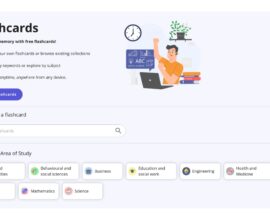10 Quick Time Management Skills For Students
Does it feel like you’re always dealing with more responsibilities and less time to complete them? You’ll need to juggle multiple commitments during your student life—from studying for tests or exams, attending classes, doing homework, completing assignments, and making time for extracurriculars.
It can feel overwhelming at times, but mastering effective time management skills for students can help you:
- Stay organised and on top of your commitments
- Learn more effectively
- Get things done on time
- Avoid last-minute assignment stress
- Get back more personal downtime
Sounds good? Learning and adopting a few time management skills early on will help you kickstart a more productive and stress-free student life.
What Is Time Management?
Time management is all about planning and controlling the amount of time you spend on activities to make the most of your day. It’s an essential skill for your schoolwork, personal life, and future career.
Here are some of our best time management tips for students:
1. Use a Calendar To Manage Your Workload
Do you know all your academic responsibilities for the term? If not, it’s time to check your course timetable and calendar. Note down assignment deadlines, exam dates, fixed commitments like class times, and any other requirements. Mark these dates in an offline or digital calendar to get a visual representation of your commitments. This will give you an easy-to-follow overview of what your weeks look like and help you plan how to use your time efficiently.
You should also update your calendar when projects or deadlines change, for instance, when getting new homework or assignments.
2. Plan Ahead Using a Daily To-Do List
One of the best ways to stay organised and get things done on time is to plan ahead using to-do lists. It’s a simple process, and you have two options:
- Write things down on a physical planner like a bullet journal, diary, or desk calendar
- Create and manage your lists using task management apps like Any.do or Remember the Milk
Use the approach that works best for you. In both cases, you will list all the work you need to get done, like upcoming assignments and their deadlines. You can then prioritise the tasks by their order of importance, due dates, and amount of time required to complete them.
Set deadlines for each task as you re-organise your list. When selecting your deadlines, it’s a good idea to aim to finish every piece of work at least one or two days before the due date.
Remember to be realistic about time, especially with tasks you haven’t done before, to avoid disappointments if you don’t meet your goals. Estimate the amount of time it will take to accomplish a task and then compare that to the actual time it took to complete. You can apply that knowledge to estimate better next time when handling a similar task.
While it’s important to stick to your to-do list, make sure you have the flexibility to handle unexpected circumstances or unforeseen interruptions.
3. Create a Dedicated Study Space
Studying in the right environment can help you concentrate, increase productivity, and complete your work faster. While it’s tempting to study in the comfort of your bed, it may not be the most conducive study environment. Designate a specific place from where you can study.
A great time-saver is planning your space ahead of time by organising all the materials you require for the study session—a clock/stopwatch, books, stationery, tools, etc.
Always ensure your study desk is clutter-free.
You can also keep relaxation items, for instance, stress balls, houseplants, photos of loved ones, or scented candles around the desk to help you stay calm and motivated in your study space.
4. Tackle Procrastination Before it Starts
Procrastination is a common enemy to time management. It happens when you avoid doing your work and get stressed, frustrated, and overwhelmed by the amount of work you need to complete in a short time. People procrastinate due to different reasons like challenging tasks, huge projects, and perfectionism.
Whatever your reasons are, develop an anti-procrastination plan. Some of the proven techniques for students to avoid procrastination include:
- Using the 5-minute rule to get started on a task—Set a timer for five minutes and focus only for that amount of time. You are free to quit after five minutes, but in most cases, you will continue working even after the time is up
- Breaking down large projects into manageable tasks—It’s easier to be overwhelmed by a 20-page report than a one-page essay. Give the task your deadline and divide it into manageable chunks to help you complete it by the due date. If you have a 20-page assignment, list the steps you’ll need to take and figure out the tasks you’ll need to accomplish daily to meet the deadline
- Asking for help in challenging projects—If you don’t understand the assignment details, don’t procrastinate! Get homework help from reliable and professional tutors online
5. Mitigate and Manage Stress
If you are stressed, you can’t perform at your peak. You’ll have trouble starting a new piece of work, staying alert, and focusing on the task at hand. If you can find healthy ways to avoid or manage stress early, you can use them to perform better and manage your time wisely.
Here are some strategies you should try:
- Set realistic goals
- Get enough sleep every night
- Exercise or take a short walk
- Establish a fixed time when you’ll end the day’s work
Having a daily fixed time for ending the day’s work will enable you to stay focused on your to-do list. You won’t think you have more hours to complete the day’s tasks and will avoid delayed bedtimes.
6. Don’t Try to Multitask
Multi-tasking is actually a myth! Handling one task at a time is one of the best time management tips for students. While it may seem like you are doing more work, handling multiple tasks is counterproductive for your overall performance and cognitive task focus.
It’s important to use concentrated single-task focus if you want to produce high-quality work. Give your full attention to one task until you complete it, and then move on to the next one.
7. Eliminate Distractions
There is no shortage of distractions. From social media, friends or family, tv, and noise. Pay attention to the things that distract you from your current task and aim to not engage in such time-wasters during your study session. Instead, you can engage in such activities as a reward for completing what you planned to do.
You should also remove anything distracting from your study desk, like magazines. Leave your phone in another room or turn off notifications before you settle down to study.
8. Take Regular Breaks
Long study sessions are tiring and less productive. It’s best to work in blocks of 40–50 minutes. If that’s a lot for you, try the Pomodoro Technique, in which you will focus for intervals of 25 mins and take a five minutes break. The breaks give your mind a much-needed rest and ensure you come back more focused.
Use your short breaks or free time thoughtfully. For instance, to perform a mundane task like washing dishes. You can also stretch, do some simple exercise, listen to music, or meditate. To ensure you don’t over-indulge, set a timer during breaks.
9. Master Your Prime Work Time
We all have different prime times. Do you work best in the morning, afternoon, or evening? Determine what your most productive hours are and work on the toughest assignments or important tasks at that time.
Besides using your optimal time to complete complex projects, you can establish a study routine around that time. Use your prime time regularly to read or study. You’ll have fewer worries about when to complete the tasks for the day especially if you have a busy schedule.
10. Understand How You Spend Your Time
If you feel unproductive and unsure of where your time goes, keep a time log for a few days. You will keep track of what you engage in, and it will provide you with a clear indication of how to manage your time effectively.
Understanding how you are spending time and what your time wasters are is key to establishing effective time management strategies.
You can either manually track and write down how you spend each hour or use a tool like RescueTime to track your digital footprint automatically. Time tracking tools will show you the apps, websites, and tools you are using and assign a productivity score.
Conclusion
Building time management skills is absolutely worth the effort. Make sure to put the time management tips you’ve learned in this guide to good use and concentrate on developing routines that work for you.
Managing your time well and staying focused will bring you the satisfaction of crossing off items on your to-do lists. You will also have enough time to engage in activities that matter to you, like participating in sports, getting some more exercise or fresh air, and spending time with friends and family.
If you’re having trouble with your schoolwork, don’t put it off or settle for low grades. Reach out to professional tutors using the most reliable online learning app, Zookal Study! You will get the help you need to complete your homework hassle-free and achieve high scores.






